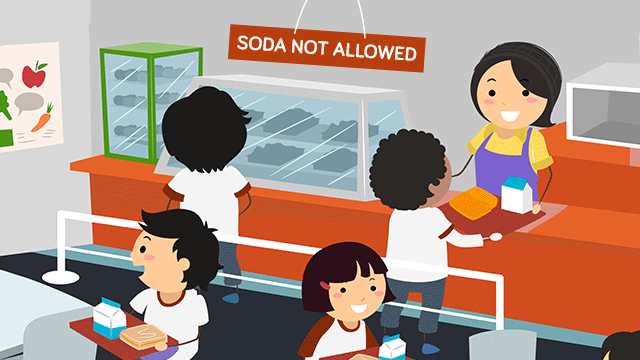SUMMARY
This is AI generated summarization, which may have errors. For context, always refer to the full article.

MANILA, Philippines – There is a looming problem of obesity in the Philippines, especially among adults aged 20 and above.
The Food and Nutrition Research Institute (FNRI) has seen an increasing prevalence of obese Filipinos in the past years.
According to FNRI’s National Nutrition Survey, one out of 3 Filipino adults are obese, with obesity prevalence among Filipino adults at 31%. The results also showed that females aged 40 to 49 who belong to the wealthier sector in urban areas are more likely to suffer from obesity.
Meanwhile, prevalence among children aged 0 to 5 years old is at 5%, and 6 to 10 years old at 4.9%. The highest rate of 8.3% is seen in the 11 to 19 years old age group. (READ: What is the nutritional status of Filipinos?)
A person may check if he is overweight or obese through the Body Mass Index (BMI). Through a simple calculator, one can classify the right proportions based on a person’s weight and height.
After finding your BMI, you can determine your weight status here:
| BMI | WEIGHT STATUS |
| 18.5 and below | Underweight |
| 18.5 – 24.9 | Normal |
| 25.0 – 29.9 | Overweight |
| 30.0 and above | Obese |
(Source: WHO)
Preventing obesity
Fortunately, overnutrition can be prevented or reversed.
It doesn’t come easy, however, as it will take strong commitment and stricter decisions and healthy eating habits to overcome the “big challenge” the country is facing. (READ: How to end obesity in the Philippines)
During the launch of the 41st Nutrition Month on July 1, the National Nutrition Council (NNC) urged various sectors to work together to eliminate the problem of double burden malnutrition.
Local communities, government agencies, and even the private sector can do their part in fighting obesity.
Here are some tips from the NNC to prevent obesity:
Household level

1. Families should consume a variety of foods every day with emphasis on vegetables and fruits. FNRI’s Pinggang Pinoy may serve as a guide to keep meals at home full of nutrients, to provide everyone’s dietary and energy requirements.
2. It is better to prepare and eat meals at home than purchasing from fastfood establishments. Making meals on your own will make you conscious of what goes into your and your family’s meals.
3. Make sure that newborns are exclusively breastfed until they are 6 months old. Breastmilk contains the best nutrients an infant needs to ensure a well nourished future.
4. Closely monitor and manage the weight of family members.
5. Encourage the whole family to engage in regular exercise to increase physical activity. Remember that a family that exercises together, stays fit together!
6. Children nowadays spend much time on gadgets and the Internet, which keep them from engaging in physical and social activities. Parents should limit the children’s usage of gadget to no more than two hours a day and encourage them to do physical activities.
Community level

1. Initiate vegetable gardens within the community. It not only makes idle land beautiful, it also makes nutritious, cheaper ingredients accessible to people in the community.
2. Organize regular exercise activities and encourage community members to participate.
3. Encourage mothers to exclusively breastfeed infants. This can be done by holding small educational sessions that will raise awareness about the importance of breastmilk in a child’s nutrition.
4. Provide children areas to play within the community to encourage physical activity.
5. Mobilize youth groups to start sports activities and to maintain healthy eating habits.
School level

1. Ensure that school canteens and cafeterias have a wide array of healthy food choices which should include vegetables, fruits, legumes, and other nutritious products.
2. Administrators should implement a ban on drinks that are rich in sugar such as carbonated and processed juice drinks.
3. Encourage children to grow vegetable gardens and fruit-bearing trees in bare areas in the campus and also in their own homes. This lesson can be included in some of their classes.
4. Implement physical activities such as sports events and proper utilization of physical education classes to keep students fit and healthy.
More serious
Being obese or overweight is more serious than it seems. According to a 2014 study in 2014 conducted by Canada’s McGill University, extreme excess weight can cut 8 years from one’s life expectancy and result in 18 unhealthy years.
It is a usual misconception that being too thin is the only sign of malnutrition and bad health, as 3.4 million adults worldwide die due to diseases and risks related to obesity. (READ: How being overweight can threaten your body)
Prevention is always better than cure, the saying goes. Following NNC’s tips may just save your life from serious health risks. – Rappler.com
Add a comment
How does this make you feel?
There are no comments yet. Add your comment to start the conversation.